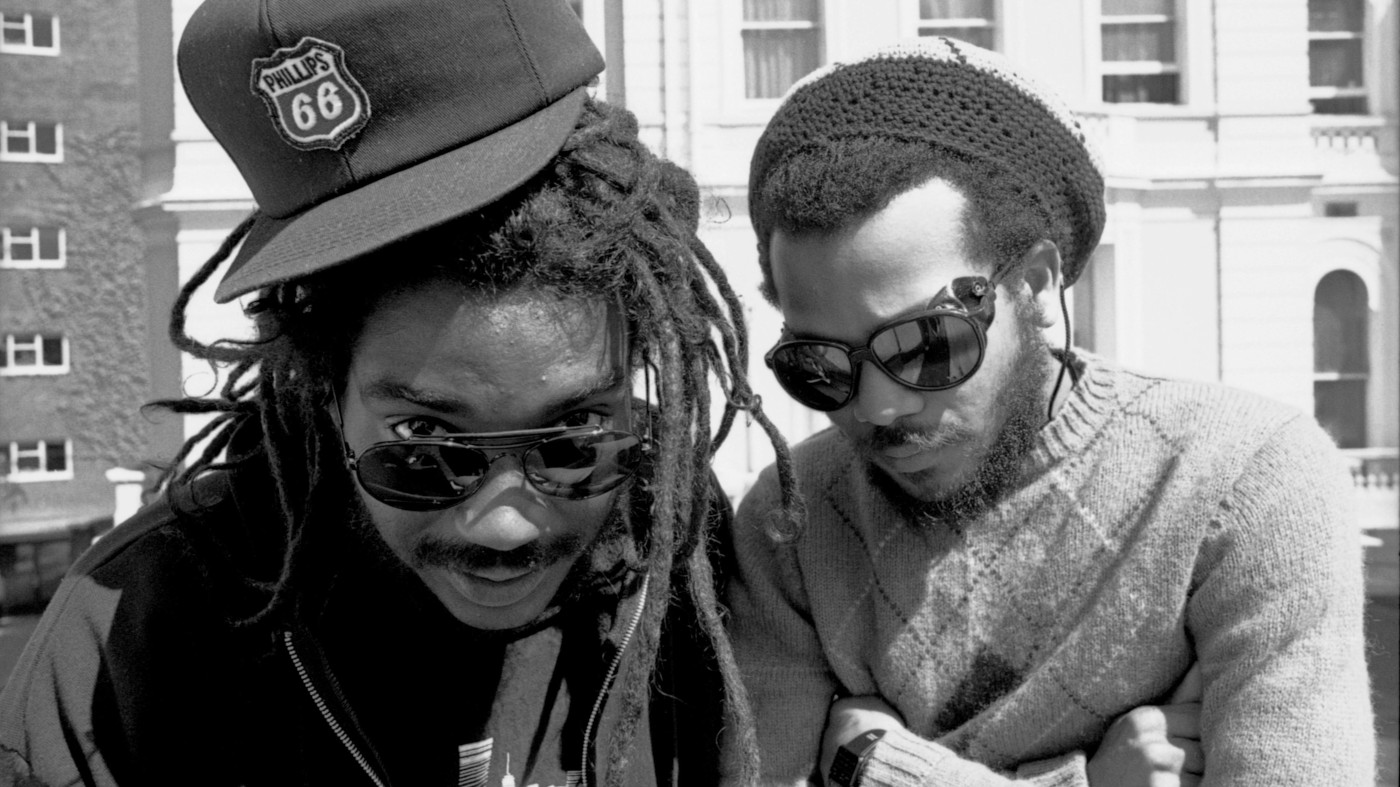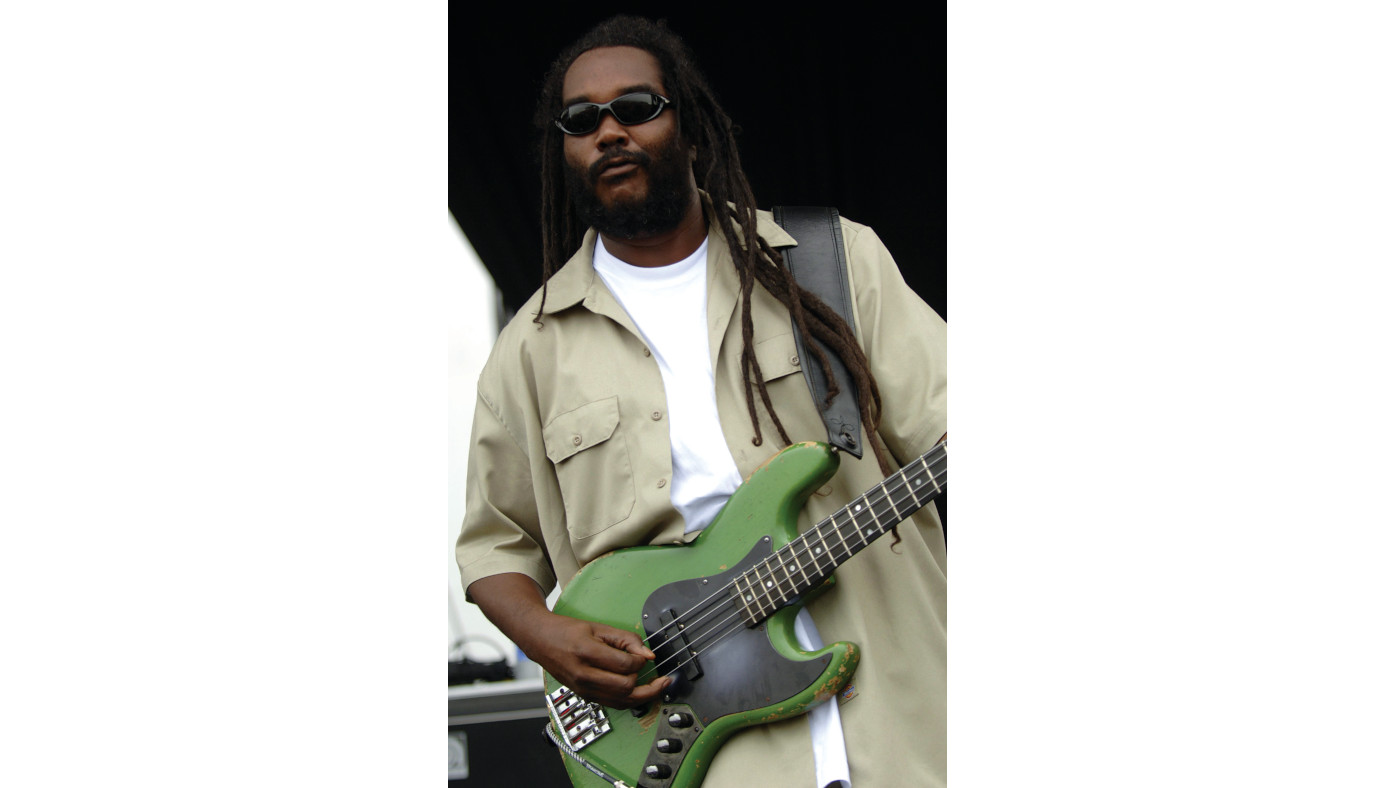Bad Brains' Darryl Jenifer: “I understand the locomotion of rhythm. When I play bass, I know how to anchor to the music”
The bass powerhouse behind the DC hardcore pioneers tells us what makes him tick

Want all the hottest music and gear news, reviews, deals, features and more, direct to your inbox? Sign up here.
You are now subscribed
Your newsletter sign-up was successful
Few bands in hardcore punk have made punk have made an impact quite like Washington, DC’s Bad Brains.
For over 40 years, this pioneering quartet have fused punk, reggae, funk and heavy metal to create a breathtaking style which belies the received wisdom of hardcore as being a relatively simple, or even atavistic, genre.
That’s in no small part thanks to the contributions of the band’s affable bassist, Darryl Jenifer, whose background in funk and soul helped to shape Bad Brains’ singular sound.
I got a guitar for Christmas – and this might sound weird, but I seemed to already know how to play
“I started out on saxophone, would you believe?” Jenifer laughs. “A long time ago, when I was in fifth grade, my cousin had a 70s funk band in DC. I was fascinated by it all and I asked if I could be in a band, and he said ‘Yeah, but you have to learn something and do good in school.’
“So I went back to school and they only had a marching band, so I said I’d play sax. But it was too much – I just didn’t have the patience to learn music. I mainly did a lot of blowing and having fun with it. I wasn’t the scholastic type.”
“Later I got a guitar for Christmas – and this might sound weird, but I seemed to already know how to play. Like, I started playing on it and I already seemed to know Get Ready by the Temptations.
“My mother said she didn’t know where I got that from. Then when I was about 13, one of my homes had a guitar, and we sat down and played Get Ready. It was my go-to ‘I know how to play guitar’ song. That’s when it took off for me, playing with neighbourhood bands.”
Want all the hottest music and gear news, reviews, deals, features and more, direct to your inbox? Sign up here.
For as long as he remembers, Jenifer says, he has felt compelled to do things differently.
“That has been a blessing. I come from a funk, Motown background, but in my teenage formative years with the guitar, I wanted to be not necessarily Hendrix, but more like Al Di Meola. I was fascinated by the technical aspects of the guitar.
“Funk was something that was always around, but I also liked Black Sabbath, which was odd for where I came from. I remember listening to a radio station which played rock music in DC, and my cousins would wonder why I’d listen to music that you can’t dance to so much!”
In a bass place
Jenifer’s transition to bass took place while playing in a band with other teenagers. He became fascinated with the instrument and would try out his bassist’s instrument during breaks. Inspired, he set out to convert his own guitar into a bass.
“I put all E strings on it! It was weird, but I started feeling the bass more. I thought it was easier, somehow, but it’s not! It just felt like me, that it was making itself be me.”
James Jamerson fascinates me and teaches me to this day. He’s the only bass player that can’t be covered!
The complexity of Jenifer’s Bad Brains basslines suggests a significant level of musical education – but, as he explains, the reality is more prosaic.
“I knew I needed to know theory, but my brain wouldn’t absorb it. I tried to start from the very beginning with theory, I’d put charts up on the wall, but it was just like looking at paper! So I don’t consider myself a musician for that reason. I’m just a guy with a knack.”
He thinks that knack is down to natural aptitude and also the range of bassists whose playing he studied.
“Geezer Butler, definitely, but James Jamerson fascinates me and teaches me to this day. He’s the only bass player that can’t be covered! He’s like the grandfather teacher to me, and should be to all bass players. And then there’s Larry Graham. A lot of people mistake his thumb playing and they get it all wrong. It’s not my favourite style; thumbing is not me, but if I have to thumb, that’s who my style is based on.”
Stanley Clarke, too, has been a major influence.
“I had Sabbath and Zeppelin, then Clarke, Mahavishnu Orchestra, and then punk stuff like 999 and Eater. And then I started making my own styles. Basically I’m Stevie Wonder, Ramones, Return To Forever and Stanley Clarke, all mixed up in one.”

Modulus man
Jenifer has a very specific idea of the role a bass should play in a band – not just in hardcore punk, but in any genre. Like the aforementioned Geezer Butler, he’s not one for flashy displays of fretboard pyrotechnics.
“I played drums, rhythm guitar and grew up in DC, so I have a natural high sense of rhythm. I understand the locomotion of rhythm. When I play bass, I know how to anchor to the music, I know how to support and bring in other musicians.
“The solidity and definition of one musician in a song can support a bunch of musicians. It’s anchoring. There’s no vagueness. When you play a bassline, you have to be playing that line. I’ve always been a background dude; I’ve never wanted the spotlight. I give back with weight and definition.”
I would never put a pedal or anything between me and the bass and the amp
By his own admission, he’s a minimalist.
“I have a green Modulus Jazz bass. That’s the only thing I would have, technically – a graphite neck. The only reason I have one is because it was the most expensive thing in the showcase when our manager was going out to buy me a bass! This is the punk rock in me – I don’t want any pedals, I don’t want shit. I have a green Modulus, and I love the sound and solidity of the instrument, which is why I’ve used the same one for 40 years.
“Other than that, get me an Ampeg SVT, get me a cable, give me some Rotosounds and a Dunlop pick, and that’s it. Wherever I go in the world, you roll all that out, then it’s on.”
That, he says, is the secret to his tone – sheer simplicity.
“I would never put a pedal or anything between me and the bass and the amp. What I want to exude is me; the energy that I have in my hands, in my fingers and in my soul, so the equipment is not going to matter.
“You can give me your fanciest shit and it’ll probably hamper me. I’m going to have more fun with the worst shit than with the fanciest. You see what I mean? The fanciest shit is going to be trying to do too much, and the worst shit can’t do nothing and I’m gonna squeeze the life out of it.”
The Bad Brains have weathered many storms: in recent years, their story has been one of battling against the odds, whether it be the ill health of guitarist Doc, or the erratic behaviour of singer HR.
The upshot is that there hasn’t been a new album since 2012’s Into The Future, but Darryl hopes that the next record – tentatively titled Mind Power – won’t be too far off.
“The thing is, Bad Brains’ music is so personal to me. It just kinda happens. I can’t really say if the new material will sound like this or that. Likewise, that’s why it’s hard to pick out my favourite stuff from the past. Voyage To Infinity on the Quickness album [1989] is cool. I’ll be doing that on the bridge, I’ve got the first and fifth shit. I like when I feel I can utilise the chords, distinctive picking flows and stuff like that.
“But I can’t really say that the songs that made it to record were necessarily the way I intended them! That teaches you that music isn’t always what you intend; that’s only part of it. You dig what I’m saying? I’m probably not satisfied with anything – but only because I’m a perfectionist.”

